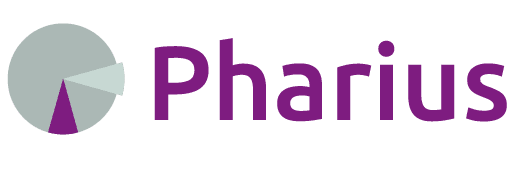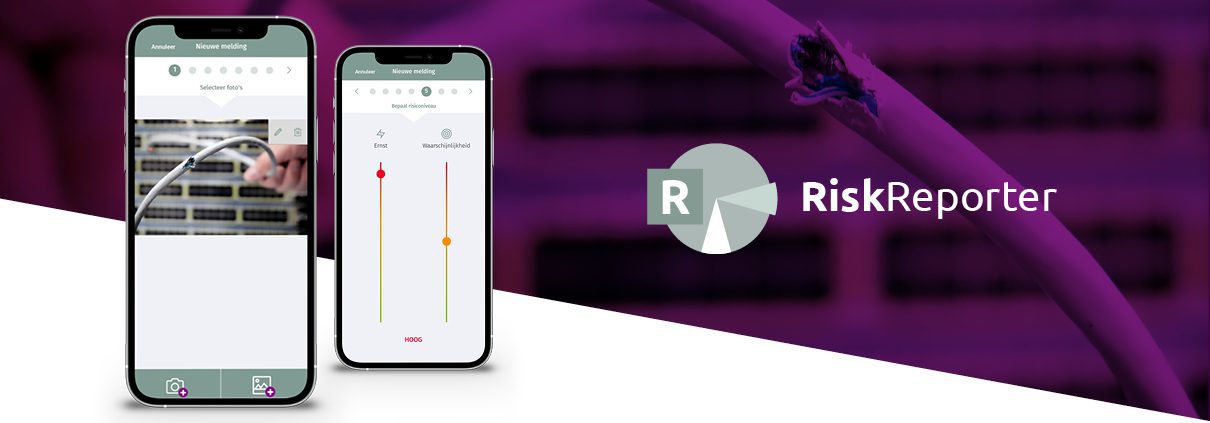Working safe and healthy at PwC
Pharius makes it easier for QHSE professionals to comply with laws and regulations in the fields of environment, food safety and health & safety. The last field also includes the topic of ‘working safely’. We asked one of the largest accounting companies in the Netherlands how they handle this theme within their organisation and how Pharius supports them in this.
PwC
PwC is an international accounting and (tax) advisory company with thirteen offices in the Netherlands and approximately 5,800 employees. The organisation is divided into four lines of services; Assurance, Tax, Advisory and the supporting line Firm Services which includes the Finance, Marketing, HR and QHSE departments. That last department has been working with Pharius since 2019. We spoke to Marina van Lee, who works as an Occupational Hygienist in PwC’s QHSE department.
Can you tell us something about QHSE at PwC?
In line with PwC’s strategy, the QHSE department acts at a strategic level. “This has not always been the case,” Marina van Lee explains. More than twenty-two years ago, she started in the (former) Health & Safety department. Back then, nobody had heard of the field of QHSE and Marina was only concerned with organising Company Emergency Response courses and workplace surveys. Fortunately, things have now changed. The QHSE department consists of a safety expert, an occupational hygienist and a third consultant from the organisation. ”We cooperate very intensively with HR colleagues. Besides Health & Safety topics that are monitored from the QHSE department, there is also a Corporate Sustainability department. One of our goals for the coming years is to connect increasingly with other departments”.
What are your main duties as an Occupational Hygienist?
”As an Occupational Hygienist, I make an important contribution to the working health of all 5,800 employees. Sometimes people ask why an office environment has its own occupational hygienist. An Occupational Hygienist focuses mainly on factors that can lead to health risks, especially in the long term. Consider, for example, risks in chemical, biological and physical aspects (noise, climate, light) and physical strain.”

Marina van Lee - Occupational hygienist PwC
"I make sure that every employee and visitor within PwC can do their work here in a healthy manner. My job is to take stock of the health risks we face and anticipate, manage and evaluate these."
What is the best thing about your job?
“No two days are the same and I love that. I am currently working on a great challenge; the refurbishment of our office in Amsterdam. There, the traditional reception halls are being converted into multifunctional spaces. This is quite a challenge. I advise my colleagues in the field of ergonomics (such as designing a new reception desk) to climate issues (how to ensure a good indoor climate)”.
”As an Occupational Hygienist, I make an important contribution to the occupational health of all employees. I focus on factors that can lead to health risks, especially in the long term. Think of risks in chemical, biological and physical aspects (noise, climate, light) and physical strain’.
What are important topics within occupational health and safety?
”In an organisation with about 5800 employees, you ALWAYS have to deal with occupational hygiene. Think about physical issues such as noise, climate, light, biological agents (of which COVID was a good example) but also psychosocial workload. An important topic”.
”Of course, we do not work with hazardous substances. But we too have cleaning agents in the kitchen cupboards, for example, we have to think about that. Are these substances really necessary, couldn’t they be used differently, how are they used? Because even though cleaning and catering are outsourced, they are in-house and we are responsible for them”.
As a QHSE department, what ambitions do you have in terms of working and safety conditions?
”In terms of legislation, once a quarter all legislation around working conditions should be reviewed and dealt with. Also looking at ISO45001. What are we doing in terms of compliance? Is this documented? A target for the upcoming year is to complete our Compliancemanager, update the Health and Safety catalogue and integrate it into Pharius’ compliance module”.
”In an organisation with about 5800 employees, you ALWAYS have to deal with occupational hygiene. Think about physical issues such as noise, climate, light, biological agents (of which COVID was a good example) but also psychosocial workload. An important topic”.
What does ISO45001 look like for you?
‘We find it important to see what we can get out of ISO45001 and what we can benefit from. The Pharius ComplianceManager was set up 1.5 years ago, following the structure of ISO45001”.
It’s not a QHSE party
”Next year we want to further complement Pharius with, as I call it, the control component. So who does what, who executes what? In short: the C in the PDCA cycle. For this, we will update and expand the Compliancemanager. By adding more and more users, we may be able to provide insight through the Task Manager into which issues have or have not been picked up”.
”I think it is important that compliance becomes a task of the whole organisation. Working safely and healthily should not just be a QHSE party. In doing so, we then want to work less with ’emails’ but more with ‘tasks’ assigned by theme to people in the organisation. That way, as a department, we are more and more able to act strategically and take on the coordinating role. After all, a safe working environment is a task for all of us”.
How did the introduction of Pharius go?
”In the beginning we had a whole tray of legislation that I had to filter myself, which took a huge amount of time. By setting up Pharius for our company and using it in the right way, the relevant legislation and changes immediately appeared to me! That suddenly made the mountain of legislation much clearer and more manageable.
We have now been using Pharius for about four years and our compliance is in order. We have organised everything at topic level and we can easily find documents. In the Compliancemanager, for example, I can quickly find things about the Working Hours Act.
Now we are ready for the next step: engaging people from the organisation. So that we can also use Pharius as a tool to coordinate and monitor. This puts the responsibility for implementing a change in legislation in the right place. I want to have insight into the data, so that I can manage it and we can adjust our policy accordingly”.
How does the Compliancemanager support you?
”Last year, I wrote a policy document on working at height. I adapted it in the Health and Safety Catalogue but I also added it in Pharius, in the Compliancemanager. In this way I demonstrate that we have a policy on this specific part. That saves an enormous amount of time. When we only worked with the Health and Safety Catalogue, I had to search for the current legislation every time. After all, you can’t blindly rely on something you described two months ago. The legislation in our Health and Safety Catalogue is always a snapshot in time. It may well be that you make an adjustment and the day after there has been a modification. It took me an enormous amount of time to sort this out for each section each time. Now, with the Health and Safety Catalogue, I always have the most up-to-date legislation at hand. And I can rely on it.
How does Pharius support you in general?
”The changes to be assessed are very helpful! There are regularly legislative changes that are of no relevance to us and now I don’t have to check all of them. Sometimes it takes a while before there are relevant changes again and thanks to Pharius I don’t miss anything. I also use the changes to keep up to date with developments in my field. Sometimes something does not have a direct impact on the organisation, but it might be of interest to me as an occupational hygienist.
To what extent is compliance important to PwC?
”Being compliant is incredibly important to me! It is the basis of the work we do. It is extremely important that we as a department get our message across well with compliance as the foundation. At PwC, it is a shared commitment to take good care of every employee. When I speak to colleagues in the industry, I notice that there is quite a bit of resistance to meeting all the compliance obligations. Fortunately, this is not an issue with us.
Do you have any tips for other Pharius users or companies considering Pharius?
”Yes indeed. Make use of the Compliancemanager! This way you not only demonstrate to external parties how you comply with laws and regulations, but this module also plays an important role internally. For us, it has become a cockpit to demonstrate how we comply.
Be sure to make use of the available support. By setting up your environment properly, you really make it much easier on yourself. That help is there for you, so make use of it. That short time you invest together will pay off big time!
More information
Wondering what Pharius can do for your audit or ISO certification? Then please contact Thierry. He will be happy to talk to you.

Thierry de Vos
Business Unit Manager Lexerta België
Pharius


